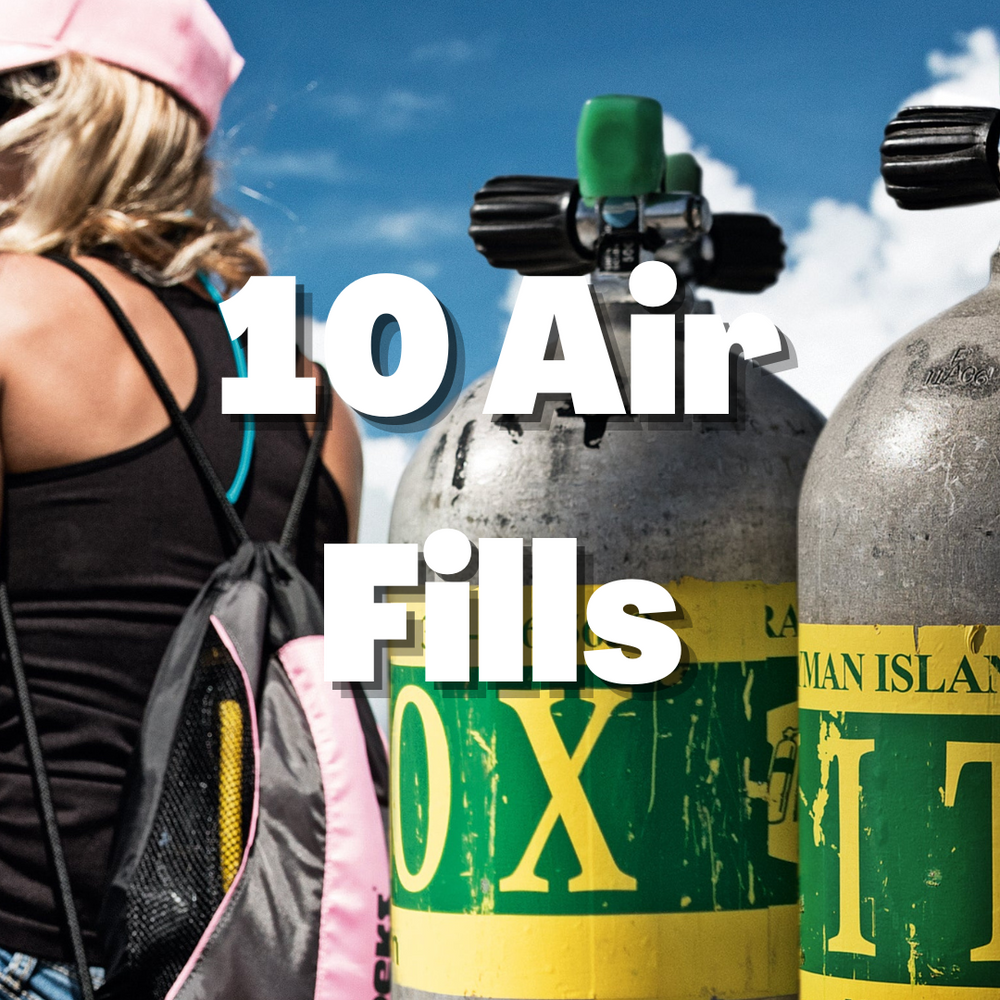Cylinders
10 products
10 products
Scuba Cylinders: Get INFORMED
Unless you are freediving, you'll have a hard time spending hours underwater without one of these metal cylinders. Cylinders come in a variety of sizes and materials to allow you to select the best equipment for your dive. Typically, cylinders are made from either Aluminum or Steel and are based on volume-- More volume = More Gas. Simple. There are carbon-fiber cylinders in use, but these are best served for rebreathers (CCR) and Self Controlled Breathing Apparatus (SCBA) used by firefighters, military, etc.
Steel Cylinders
Extremely durable and will easily last for decades as long as they are properly cared for. Steel is a denser metal than aluminum, and will typically have better buoyancy characteristics than aluminum cylinders. However, if you find yourself overweight (speaking to you warm water divers), you may find aluminum to be a better fit. Faber’s Cylinders are appreciated worldwide by scuba divers who choose steel tanks for their aqua-lung apparatus. To give you the lightest (and hence an optimum wall thickness) steel tanks (cylinders) with an ideal buoyancy, Faber’s scuba diving cylinders are diligently manufactured using high-quality steel plates. If you are already using steel cylinders when diving you don't need to be convinced about the advantages of steel. Besides the buoyancy attractions, it occupies a far lower volume for the same water capacity allowing you to enjoy greater space and freedom and free from any worries of developing any premature defects such as sustained load cracking (SLC) found in some aluminum-alloy cylinders such as those from alloys AA6351, AA6082.
Aluminum Tanks
Aluminum cylinders store gases for a wide variety of applications including ultra-high purity gases for electronics manufacturing, specialty and calibration gas, industrial gas, medical oxygen, food, and beverage grade CO2, SCUBA, fire & rescue, alternative fuel, and aerospace. They are the most economical means for dive operators as the cost of the cylinder is typically 40% less expensive--which is why you see aluminum 80cuft/11.1L cylinders in almost every destination around the world.
As mentioned above, aluminum is less dense than steel and does require a little more precaution when caring for them. They will still easily last for more than 20 years with proper visual inspections and hydro-static inspections. One thing to note is that all-aluminum cylinders, except for ones stamped with an “N,” are positively buoyant at the end of a dive. The “N” on some cylinders means they are ‘neutrally buoyant.’
In Technical, Cave, Self-Reliant [Solo] diving, aluminum cylinders are the go-to standard for stages, decompression cylinders, and other high oxygen mixtures. They are typically lighter than steel cylinders and are preferred when a person can’t handle the extra weight on their body. However, that comes at a cost in terms of volume as the lighter the cylinder, the less volume it can [generally] take.
Ótimo atendimento..super recomendo
The Bolt is Excellent
This people has a great service really precise with the mixes
So far my favorite fins happy the shop have best products and customer service
Ryan did an unscheduled service on my regs after I damaged them .
He returned them to pristine condition and in short order.
Dealing with Aqui is always a pleasant experience.
Would and do recommend them to all!
I went to Aqui because I met Landon at another dive shop about a 1-1/2 years ago, and he ended up expertly fixing my regulator and helping me replace a faulty first stage with a new Deep 6 first stage.
I wasn't permanently living in the neighborhood at that time, but since then I've moved to Ft Lauderdale, and Aqui has quickly become my go-to dive shop.
Mason is always there with a smile and a readiness to help with expertise, straight-forward advice, and mechanical know-how. After talking with him and Tyler, I just bought two new Deep 6 regulators and he made sure everything was working properly before my shore dive in LBTS last weekend.
I can't recommend Aqui highly enough!
These are perfect for hard-clipping into ur dive buddy
Excellent and premium customer service
I had originally been looking that the Zen deluxe because of hearing so many stories from people having trouble getting their single piece harness adjusted properly. After a lengthy phone call with Ryan I decided instead to opt of the standard version with the upgraded, limp webbing. After initial adjustments in my living room I dove one time and had to male only a small.adjustment in the crotch strap.
I never feel this system on my person except walking from my seat on the boat to the edge to jump in. It keeps you in whatever position you want and if horizontal, it keeps me perfectly level. I opted for the aluminum backplate. With 3mm suit, shark skin vest and shark skin hood I require zero lead and actually am probably still a few pounds negative.
I'm 6' 0" and 200 lbs with 10ish% bf.
Love these bolt snap 10/10 better than anything else out there
Sign Up to receive the latest news and updates, exclusive offers, event invites, and trips. Save on Personal gear packages and training with our awesome bundled deals!












